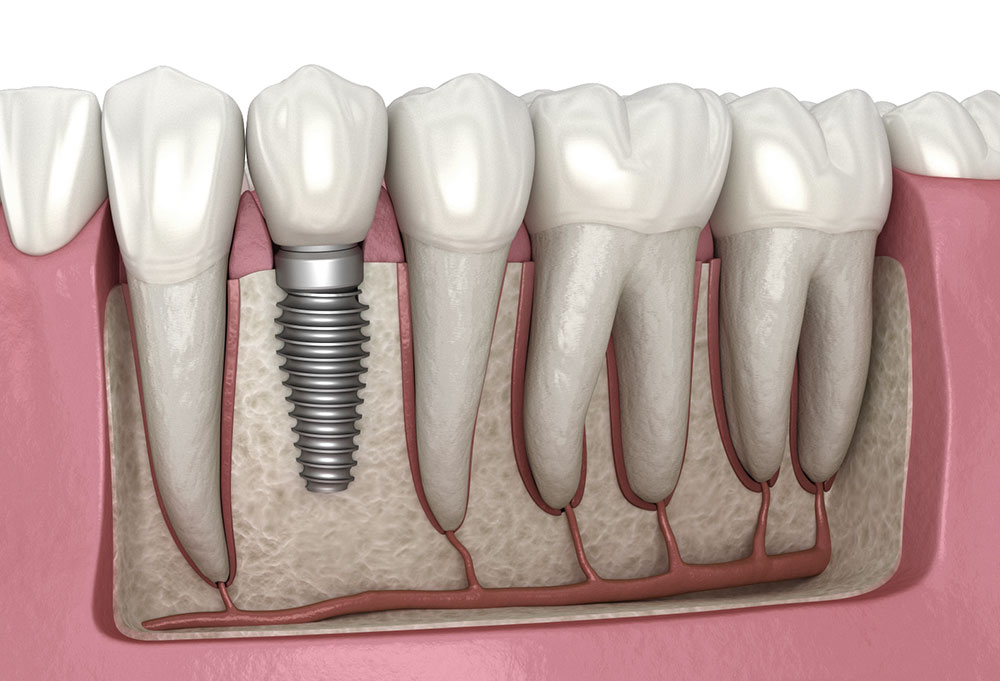When it comes to dental health, one of the most significant advancements in modern dentistry is the development of dental implant systems. These systems provide reliable, long-lasting solutions for individuals with missing or damaged teeth. If you’re considering improving your smile or enhancing your oral health, understanding dental implants is crucial.
What Are Dental Implant Systems?
A dental implant system is a comprehensive set of components used to replace missing teeth. Unlike traditional dentures, dental implants offer a permanent solution that integrates with the jawbone. This system typically includes three parts: the implant post, the abutment, and the crown.
- Implant Post: This is the metal screw or rod placed into the jawbone. It acts as a root for the new tooth.
- Abutment: The abutment connects the implant post to the crown. It helps secure the crown firmly in place.
- Crown: The crown is the visible part of the implant. It is custom-made to resemble your natural teeth.
Dental implant systems provide several advantages over other dental restoration methods. Let’s take a closer look at their benefits.
Benefits of Dental Implant Systems
Durability and Longevity
Dental implants are known for their remarkable durability. Unlike traditional bridges or dentures, which may require adjustments or replacements over time, dental implants can last for decades with proper care. This long-term durability makes them a cost-effective choice in the long run.
Natural Look and Feel
Because dental implants are designed to mimic natural teeth, they offer an aesthetic appearance that is hard to distinguish from real teeth. Additionally, the materials used in the crown, such as porcelain, are color-matched to blend seamlessly with your existing teeth. Dental implants also feel more natural, as they are securely anchored in the jaw, eliminating the discomfort that can occur with removable dentures.
Improved Functionality
With a dental implant system, you can restore full function to your mouth. This means no more worrying about food getting stuck in dentures or avoiding certain foods because of discomfort. Dental implants allow you to eat, speak, and smile with confidence, just like your natural teeth.
Preservation of Bone Health
One of the key benefits of dental implants is their ability to preserve bone health. When you lose a tooth, the bone around the missing tooth can deteriorate over time. Dental implants stimulate the jawbone, promoting bone growth and maintaining its structure. This prevents bone loss and helps maintain your facial appearance.
Easy Maintenance
Dental implants require the same care as natural teeth. Regular brushing, flossing, and dental check-ups will keep them in good condition. There are no special cleaning solutions or techniques needed, making it a straightforward and low-maintenance option.
Types of Dental Implants
Dental implant systems come in various types, each designed to address different dental needs. Here are the most common options:
1. Endosteal Implants
Endosteal implants are the most common type of dental implant. These implants are placed directly into the jawbone and are typically used to replace single teeth or groups of teeth. The implant post is made from titanium or another biocompatible material that integrates with the bone.
2. Subperiosteal Implants
Subperiosteal implants are placed on top of the jawbone, beneath the gum tissue. This type of implant is often used for patients who have insufficient bone height or who are unable to undergo bone grafting. Subperiosteal implants are less common than endosteal implants but may be a viable option for certain cases.
3. All-on-4 Implants
All-on-4 implants are a specific type of implant system designed to replace an entire set of teeth. Four implant posts are placed strategically in the jaw, and a full arch of teeth is supported by these posts. This approach is often used for patients who are missing most or all of their teeth and want a more affordable, efficient solution compared to individual implants.
The Process of Getting Dental Implants
The process of receiving dental implants typically involves multiple stages:
- Initial Consultation: During your first visit, your dentist will evaluate your oral health, discuss your options, and determine whether dental implants are the right solution for you.
- Surgical Placement of Implants: The dental implant posts are surgically placed into the jawbone. This step requires a healing period of several months to ensure the implants integrate properly with the bone.
- Abutment and Crown Placement: After the implants have fully fused with the bone, the abutment is placed on top of the implant. Finally, a custom-made crown is placed on the abutment, completing the restoration.
Choosing the Right Dental Implant System
When selecting a dental implant system, it’s essential to choose a reputable brand and a qualified dental professional. Factors like the type of materials used, the design of the implant system, and the experience of the dentist can all influence the success of the procedure.
One of the top options for dental implants is TAG Dental’s Implant System. This system is designed for simplicity, flexibility, and long-term reliability. It features unique platform switching, a reverse crown abutment profile, and uniform internal connection designs, ensuring a secure and effective solution for a wide range of dental needs.
Cost of Dental Implants
The cost of dental implants can vary depending on factors such as the type of implant, the materials used, and the complexity of the procedure. On average, dental implants tend to be more expensive than traditional dentures or bridges. However, due to their durability and long lifespan, they are often considered a more cost-effective solution in the long run.
The Importance of Post-Surgery Care
After the dental implant surgery, it’s crucial to follow your dentist’s aftercare instructions. Proper care during the healing process ensures that the implants integrate well with the bone and reduces the risk of complications. This may include avoiding certain foods, taking prescribed medications, and maintaining good oral hygiene.
Conclusion
Dental implant systems are a revolutionary solution for restoring missing teeth and improving your overall dental health. With their durability, natural appearance, and ability to preserve bone structure, dental implants provide an excellent alternative to traditional dentures and bridges. Whether you’re looking to replace a single tooth or an entire arch, dental implants offer a reliable and long-lasting solution to keep your smile confident and healthy.
If you’re considering dental implant systems for restoring your smile, consult with a dental professional to find the best solution for your needs. Get the lasting results you deserve with advanced dental implant technology.






